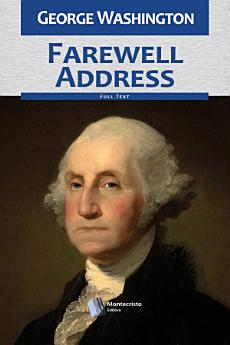George Washington’s Farewell Address
About this ebook
The address covers several crucial themes. Washington emphasized the importance of national unity, warning against the dangers of division that could weaken the nation. He also advocated for a policy of neutrality regarding international conflicts, advising the U.S. to avoid permanent alliances that might drag the country into unnecessary wars. The formation of political parties was another concern, seen as a potential source of internal discord. Washington underscored the relevance of religion and morality to social and political well-being, arguing that these virtues are essential for public order. He also cautioned against the dangers of excessive public debt, which could jeopardize the country’s financial independence and freedom. Furthermore, he encouraged the promotion of education and knowledge to ensure the liberty and prosperity of the United States.
The legacy of the address includes the establishment of the two-term presidential tradition, which lasted until Franklin D. Roosevelt and was later codified in the 22nd Amendment to the U.S. Constitution. The Farewell Address continues to influence discussions about foreign policy, the nature of political parties, and the importance of national unity, reflecting Washington’s vision and leadership in the nation’s early years.
Ratings and reviews
- Flag inappropriate
- Flag inappropriate
About the author
George Washington, widely known as the "Father of His Country" in the United States, was born on February 22, 1732, at Pope's Creek plantation in Westmoreland County, Virginia, to Augustine Washington and Mary Ball Washington, members of the middle-class farming and plantation-owning gentry. His early life was marked by the premature death of his father in 1743, when George was just 11 years old, which limited his formal education to an elementary level, likely received through tutors or local schools, focusing on mathematics, reading, writing, and basic legal principles. Despite this, he developed a keen interest in geometry and trigonometry, skills that prepared him for his initial career as a surveyor.







